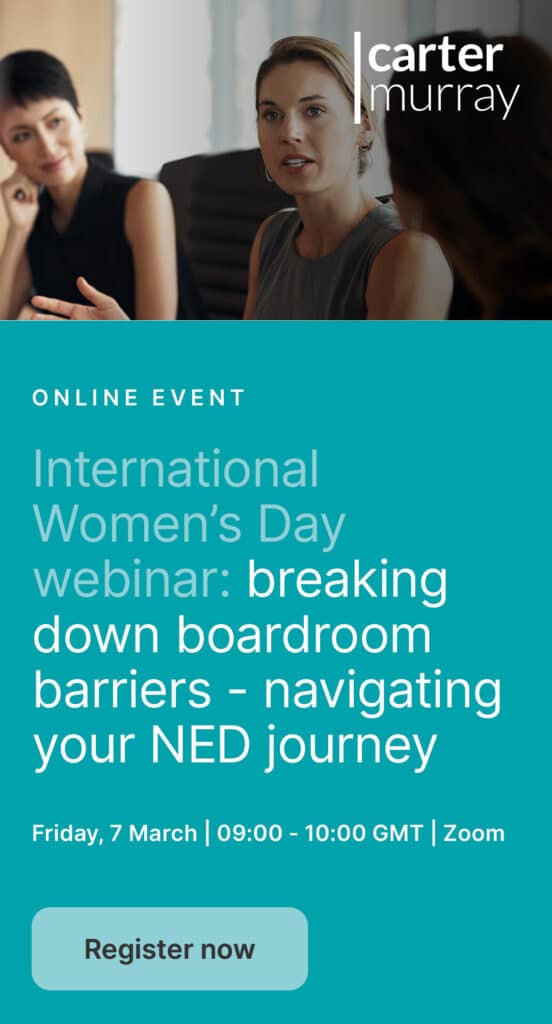Why experience in professional services is key for business development roles in law firms
Are you in a business development role within professional services (such as accountancy, consultancy or property) looking to transition into a UK-based law firm? Your experience in professional services will give you a competitive edge for the job.
If you don’t already work in professional services, this transition will almost certainly be more challenging. Law firms operate differently from most other sectors (such as banking, financial services and commerce). They require a specific range of experience and rarely recruit candidates outside of professional services.
The debate around same-sector experience requirements within law firms is longstanding. Hiring managers may widen their circle of possible candidates during their initial search, but they almost always recruit someone with experience in professional services or even law firms only.
Here’s how the legal sector operates differently from other sectors and why relevant experience and skillsets are crucial if you want to work as a business development professional in a law firm.
The partnership matrix: a unique business structure
Law firms often prefer candidates with professional services experience and skillsets because of their unique partnership model. In corporate businesses, decisions typically come from a CEO and board but law firms operate with a partnership matrix. This model involves multiple decision-makers, legal professionals and business owners (Partners), creating a non-linear decision-making process.
In a law firm, each legal practice area can have multiple Partners with their own priorities, initiatives, client needs and personal brands. A practice area could have ten, 50 or even 80+ Partners depending on the law firm. This structure can lead to conflicts of interest if Partners work independently rather than collaboratively.
As a business development professional, you’ll need to navigate these complexities and act as a trusted advisor of the legal market. You’ll need to shape business development and identify business and cross-selling opportunities that meet all of your Partners’ needs while increasing the law firm’s profitability.
Building relationships with Partners (who are often time-poor while they focus on putting in billable hours), earning their trust and understanding partnership dynamics is critical for business development roles in law firms. Learn more about your stakeholders’ personality types.
If you work at an accountancy firm, you’ll know they’re typically more commercial than law firms. They might revolve less around details but operate similarly with numerous decision-makers that have their own expectations and agendas. As a business development professional, you’ve been required to build your credibility with each of these senior stakeholders to effectively perform your role. This experience will be invaluable when applying to jobs in law firms.
Understanding professional services dynamics
There are many other dynamics that are unique to professional services which require relevant experience and business development skills. These include:
- A client service mindset: Professional services firms (including law firms) prioritise client relationships. Experience in this environment gives you the ability to anticipate client needs and manage expectations
- Project management skills: It’s common for business development professionals to manage multiple clients and projects simultaneously in professional services. This experience can help you handle complex, multi-faceted business development projects in a law firm
- Regulatory and compliance awareness: Professional services firms often operate in regulated environments. Experience in these sectors helps you understand the importance of compliance and navigate legal and regulatory requirements
- Strategic and analytical thinking: Business development in professional services requires a strategic skillset. Experience in this field helps you develop long-term strategies to achieve business development goals – aligning them with market trends and competitive dynamics. Analytical skills are also directly transferrable to a law firm where data-driven decision-making is crucial for successful business development
- Relationship management: Working in professional services often involves influencing senior stakeholders. This experience is invaluable in law firms where persuading Partners and managing internal dynamics is critical. Professional services experience also helps you resolve conflict – a valuable skillset in law firms with their complex partnership structures
- Specialised knowledge and expertise: Professional services firms often require specialised knowledge of other sectors. This will help you tailor legal solutions for current and potential clients when working in a law firm
- Building credibility: Professional services experience helps you understand the importance of reputation management. This is crucial in law firm were maintaining a strong, credible reputation is essential for attracting potential clients and the retention of key clients. Experience in professional services often involves contributing to thought leadership through articles, whitepapers and public speaking. This can enhance your credibility and influence within a law firm, positioning you as a knowledgeable and respected business development professional
- Collaborating with other teams: In professional services, you’re often expected to work closely and collaborate with other departments and teams. For example, you might work closely with Marketing Managers and digital marketing experts in the marketing team to ensure marketing and business development strategies are aligned
What does a business development professional do in a law firm?
Business development professionals wear many hats when working in law firms. This multifaceted role acts as the bridge between the firm’s legal expertise and a commercial market.
They are constantly working to attract new clients, strengthen existing relationships, support the firm’s business plans and marketing strategies, and ultimately achieve its financial goals.
In terms of hierarchy, the role typically develops from Business Development Assistant to Executive, Manager, then finally Head or Director of Business Development.
How to find your business development role in a law firm
If you’re considering a business development role in the legal sector, you can use a combination of strategic job searching, professional resources and networking. Here are some examples:
- Recruitment agencies: Agencies like Carter Murray can help you find the right role. There are many benefits of using a recruitment agency, including early access to job opportunities, expert guidance, mentorship and networking connections
- Company websites: Consider the law firms you’d like to work for and visit their career webpages. This will give you an idea of what it’s like to work there and their employer brand, including their vision, culture, mission, values and more. This research will benefit you during application and hiring processes for roles within the legal sector
- General job boards: You can find business development roles on general job boards like Carter Murray, Reed, Totaljobs and LinkedIn
- LinkedIn: You can make yourself more visible to recruiters and hiring managers (without your employer knowing you’re looking elsewhere) by ensuring your LinkedIn social media profile is up-to-date with your relevant experience and skillsets. Recruiters use LinkedIn technology to source and screen candidates on behalf of hiring managers, so this makes it easier to discover you. It also helps if you engage with law firms on LinkedIn that you’d like to work for – such as following their social media pages and applying for their business development jobs
- Networking: Attending networking events and conferences is the best way to stay up-to-date on legal industry trends, share knowledge and hear about business development career opportunities through new relationships and referrals. We also host smaller, interactive networking events – you can contact us to learn more
Get in touch with us to discuss your career goals.




